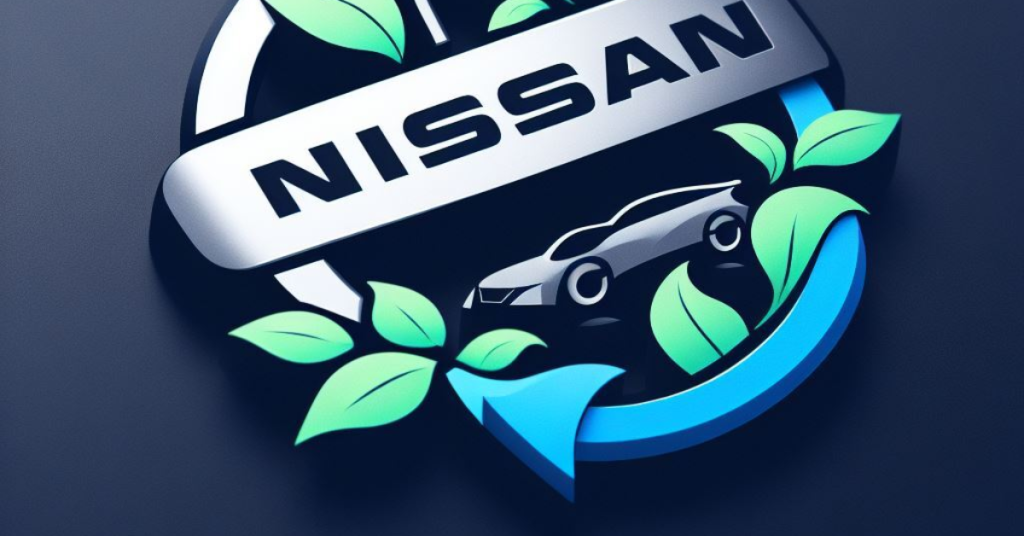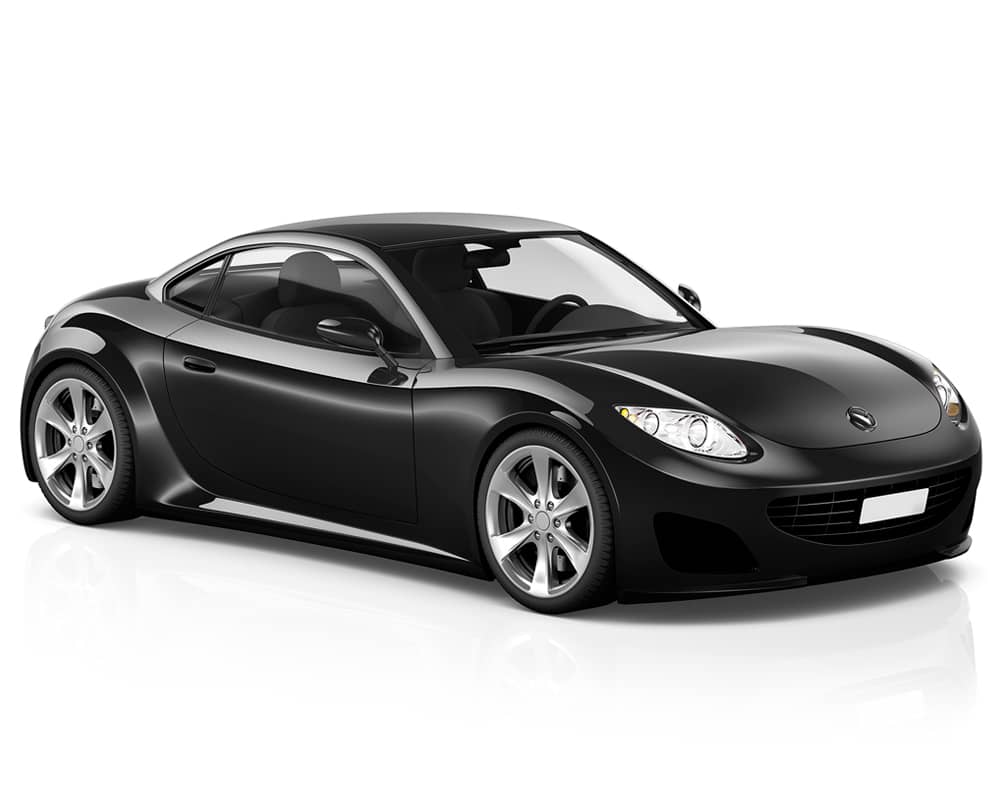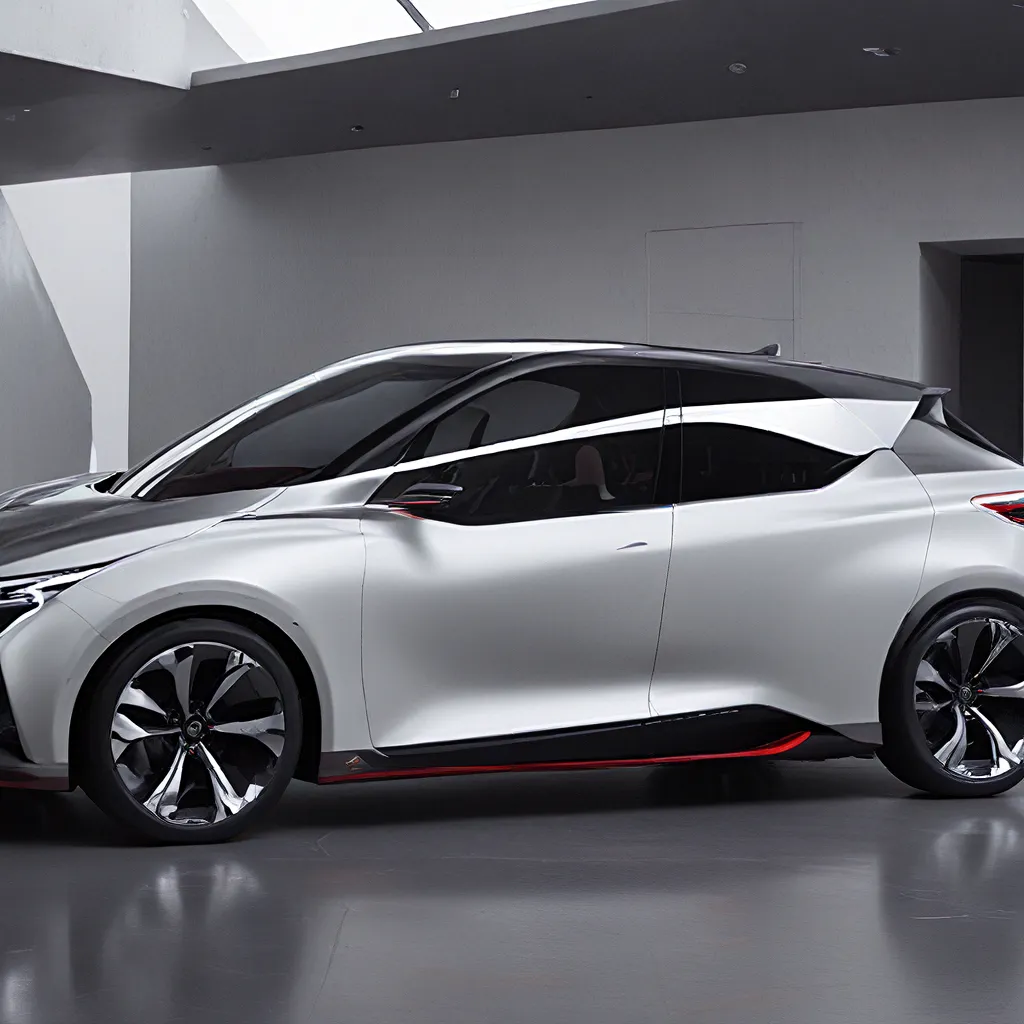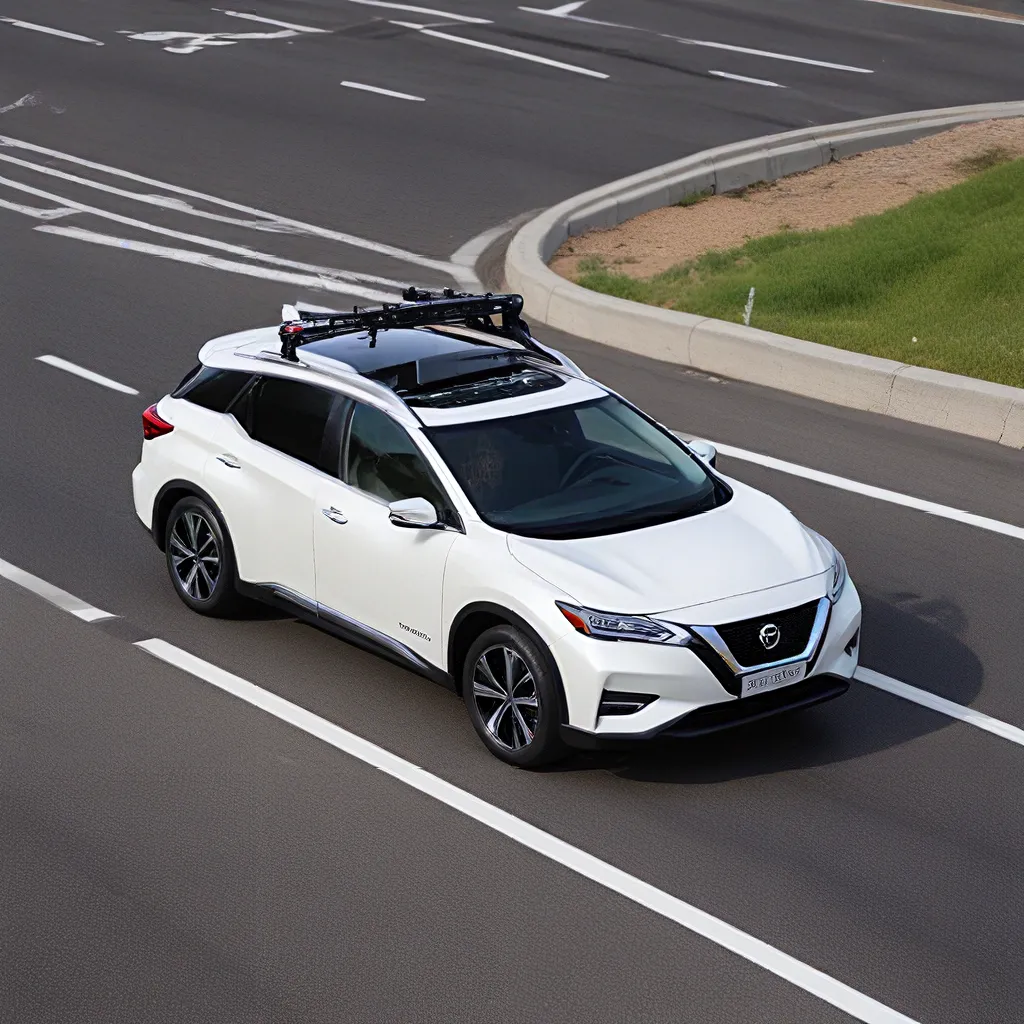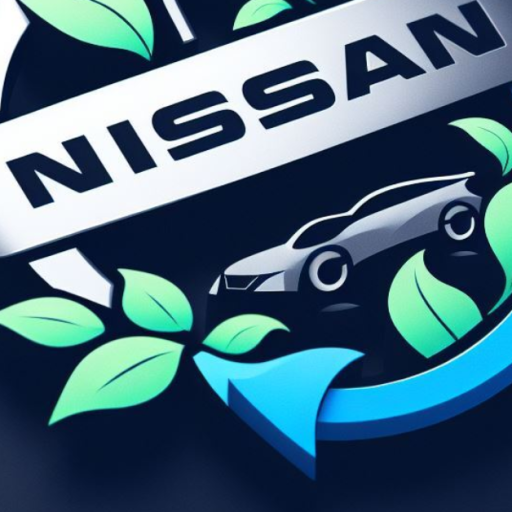Introduction to Nissan’s Electric Revolution
The automotive industry is undergoing a massive transformation driven by electrification. As concerns around climate change and energy security grow, electric vehicles (EVs) are emerging as a sustainable mobility solution. At the forefront of this electric revolution is Nissan. Through sustained investments and innovations in electric technology over decades, Nissan has established itself as a pioneer and leader in mass-market EVs.
Nissan launched the world’s first mainstream, mass-produced electric car – the Nissan Leaf – in 2010. This marked a turning point in the acceptance and adoption of EVs globally. Nissan’s electric revolution was hence born out of a vision to transform mobility through zero-emission electric vehicles. Over the last decade, the company has expanded its EV lineup across vehicle segments and accelerated the transition toward an electrified future.
Nissan has made strategic decisions and partnerships to develop long-range, affordable EVs; build charging infrastructure; produce zero-emission electric power trains; and integrate autonomous driving technologies with EVs. The Japanese automaker today offers a range of all-electric and hybrid models catering to diverse consumer needs. Backed by its advanced lithium-ion batteries and powertrain expertise, Nissan continues to stay ahead in EV technology.
As a sustainability leader, Nissan aims to electrify its range of vehicles, reduce carbon footprint across the vehicle lifecycle, and usher in a new era of safe, smart electric mobility. The company’s visionary electric revolution has positioned Nissan at the vanguard of zero-emission transportation worldwide.
Historical Journey of Nissan’s Electrification
Nissan’s pursuit of vehicle electrification began in the late 1940s with the Tama Electric Car – Japan’s first-ever electric vehicle. In 1996, the Prairie Joy EV became the first modern electric car marketed by Nissan. The lithium-ion battery-powered Altra EV was launched in 1998. However, it was the Hypermini in 1999 that captured world attention as a pioneering city EV.
The early 2000s saw limited-run EVs like the R’nessa and the e-4 Motor in Japan. Nissan kept developing EV models throughout the decade before launching its first global mass-production EV – the Nissan Leaf – in 2010. The Leaf’s launch marked a significant milestone as the first practical, family-friendly EV with a range of over 100 miles.
The second-generation Leaf built on the original’s success by extending its range and lowering costs. In 2018, Nissan launched the Leaf e+, introducing increased power and torque for improved performance. The Ariya, Nissan’s first electric crossover SUV, debuted in 2020 with an estimated 300-mile range and powerful performance.
Alongside its pioneering work in the EV space, Nissan has also launched hybrid electric models like the Altima Hybrid, Pathfinder Hybrid, Rogue Hybrid, and Murano Hybrid. As battery costs decline, Nissan aims to continue expanding its EV lineup across all vehicle segments.
Nissan’s Vision for an Electric Future
Nissan aims to leverage its early lead in EVs to achieve an electrified mobility future aligned with its corporate purpose – “Driving innovation to enrich people’s lives”. The company is guided by its long-term vision Nissan Ambition 2030, which puts electrification and carbon neutrality at the core of operations.
By 2030, Nissan plans to launch 23 electrified models including 15 new EVs. The target is for EVs to achieve a 50% mix of Nissan’s global fleet sales by fiscal year 2030. Electrification will also extend to commercial vehicles. With sustainability as a key pillar, Nissan aims for carbon neutrality across the company’s operations and the life cycle of its products by 2050.
Nissan’s electrification vision is underpinned by ambitious investment. The company along with partners plans to spend $18 billion over five years to accelerate the EV transition. This includes developing more advanced EV batteries, ramping up battery production capacity, and expanding charging infrastructure. Nissan aims to deliver exciting EVs that meet diverse customer needs across segments and drive adoption at scale.
Evolution of Nissan Electric Vehicles (EVs)
Since the first generation Nissan Leaf, the company’s EV capabilities have rapidly evolved across critical vectors – range, charging time, performance, design, and advanced technologies. Early Nissan EVs offered less than 100 miles range, while its upcoming models will deliver up to 500 miles on a single charge.
Charging times have shortened from 8 hours in the original Leaf to under 40 minutes in new models. Performance has also seen major improvements to make EVs responsive and fun to drive. The latest Leaf e+ delivers 214 horsepower and 250 lb/ft torque, enabling 0-60 mph in just 6.5 seconds.
Nissan EVs have shed traditional economy car designs for sleek and modern styling. Aerodynamic profiles enhance range while cabins offer premium features and intelligent interfaces. Advanced technologies in terms of battery chemistry, powertrains, chassis, autonomous driving capabilities, connectivity and safety systems take the driving experience to the next level.
Upcoming EVs like the 400-mile Ariya crossover and sporty conversions of Nissan classics like the GT-R signal the company’s intent to lead the electric future. Nissan’s expertise in scaling EV production also means its innovations eventually translate into affordable, mainstream models.
The Birth of Nissan Leaf
The Nissan Leaf, which first rolled out in 2010, paved the way for modern, mainstream electric cars. It was the world’s first mass-market highway-capable EV sold in multiple markets worldwide. The five-seater hatchback’s 90 miles EPA-rated range removed range anxiety concerns while the spacious interior and cargo space gave it practicality.
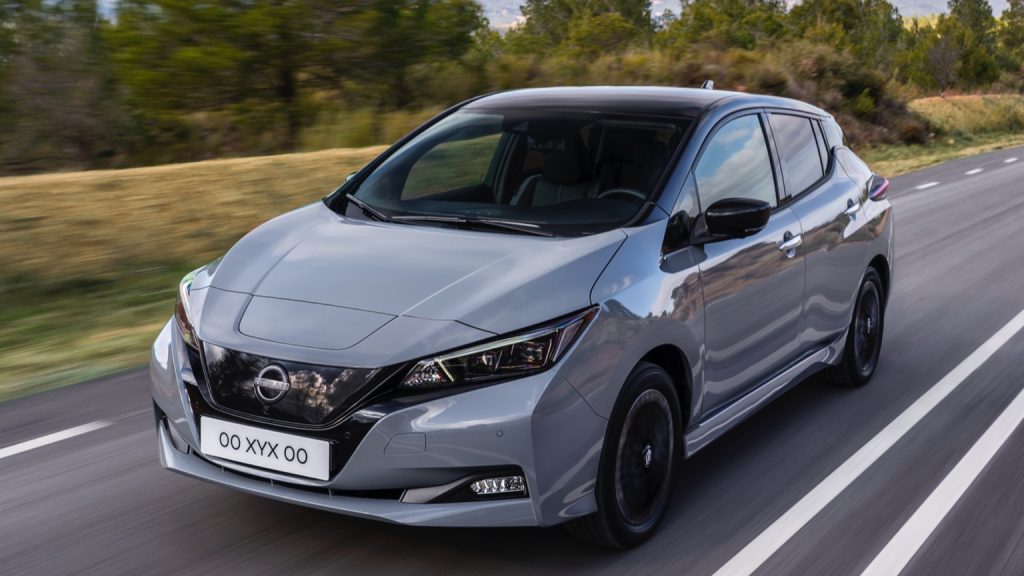
With lively acceleration delivered through the electric drivetrain, the Leaf showcased that EVs could be just as enjoyable to drive as gasoline vehicles. The Leaf was powered by lithium-ion battery packs co-developed by Nissan and NEC. Features like advanced telematics for remote monitoring and charging management made EVs user-friendly and accessible.
Priced competitively including government incentives, the Leaf made EVs affordable to the average car buyer. Its success forced other automakers to accelerate their own electrification efforts. The Leaf has seen continuous upgrades over successive generations to extend range, enhance performance, add features, and lower costs. It paved the way for Nissan’s multi-billion-dollar investments towards an all-electric lineup.
Performance Evolution: Comparing Nissan EV Models
Nissan has launched several EV models catering to different consumer needs and driving patterns. The compact Leaf has seen major upgrades from a modest 107 hp motor in the first generation to a potent 214 hp powertrain in the latest Leaf e+ trim.
The Ariya crossover boasts up to 389 hp allowing 0 to 60 mph in around 5 seconds – rivalling performance SUVs. The upcoming GT-R sports car conversion is expected to deliver a high 400 hp range and sub-3 second 0-60 mph acceleration.
Range has expanded significantly from the original Leaf’s 73 miles to up to 300 miles in new models like the Ariya through battery chemistry enhancements. Chademo fast charging enables Nissan EVs to charge up to 80% in around 40 minutes.
Over-the-air software updates have added features and improved performance in existing Nissan EV owners’ vehicles. With each new model, Nissan pushes the boundaries on EV capabilities while reducing costs, signaling an exciting future for electric mobility.
Battery Technology Advancements by Nissan
Nissan has continuously improved its lithium-ion battery technology over successive generations to enhance range, performance, durability, safety and cost. Advancements span battery chemistry, cell structure, density, manufacturing processes, cooling systems and battery management software.
Nissan leverages its joint battery plants with NEC to achieve economies of scale and optimized production. The latest Leaf e+ employs higher density electrode materials and an energy-dense electrolyte to achieve 62 kWh capacity from the same physical cell size. The unique cell structure improves cooling while allowing faster charging.
Future batteries are expected to adopt solid-state electrolytes to increase density and safety. Nissan is also developing cobalt-free batteries to reduce dependence on scarce materials. With dedicated R&D and manufacturing facilities, Nissan leads in high-capacity EV battery technologies and remains ahead of rival automakers.
Tackling Range Anxiety: Nissan’s Approach
A key obstacle to mainstream EV adoption has been range anxiety – the worry about running out of charge mid-drive. Nissan has employed three strategies to address this concern:
- Extending Range: Through improved battery energy density and efficiency, Nissan has significantly increased its range from 73 miles in early Leaf models to up to 300 miles in the new Ariya.
- Charging Infrastructure: Via partnerships and proprietary networks like Nissan No Charge to Charge, Nissan continues to expand fast charging points globally.
- Education: By providing accurate range estimates, charging planners and apps that identify public chargers along routes, Nissan relieves user anxiety around the range.
Upcoming EVs equipped with over 400-mile range and 30-minute fast charging will eliminate range anxiety for most drivers. Nissan’s multi-pronged approach has been pivotal to EV adoption by assuring customers they can meet daily mobility needs.
Charging Infrastructure: Nissan’s Initiatives
A robust charging infrastructure that matches the reach of gas stations is vital for mass EV uptake. Nissan has taken a three-pronged approach to developing a convenient, easily accessible charging network.
Firstly, Nissan teams up with private charging point operators like EVgo to install DC fast chargers at key locations like highways and commercial centers. Secondly, the “No Charge to Charge” program provides free charging to Leaf owners at participating sites. Thirdly, Nissan partners with municipalities worldwide to install chargers and provide incentives for home charging.
These initiatives have enabled Leaf customers to access charging points at workplaces, parking garages, shopping malls, hotels and other public locations. As EVs scale, Nissan aims to further grow its charging ecosystem to keep pace with demand and deter range anxiety.
Nissan’s Autonomous Driving Technology
Nissan is a pioneer in autonomous driving technology development through its ProPilot assist system and Seamless Autonomous Mobility solutions. ProPilot debuted in 2016 and has evolved into ProPilot 2.0 with hands-off single lane highway driving capabilities.
Nissan’s autonomous EVs are enabled by a state-of-the-art electronic and sensing architecture. Long-range radar, laser scanners, Around View monitors and sonars allow 360-degree detection of obstacles. AI processors running deep neural networks enable real-time scene interpretation, planning and control.
Nissan aims for full autonomous driving on city roads by 2030. Through its NASA AMES and Silicon Valley research facilities, Nissan leads in integrating autonomous functionality with zero-emission EVs to realize the ultimate vision of safe, self-driving mobility.
Integration of Autonomous and Electric Technologies
Nissan envisions electric and self-driving cars as complementary technologies. Autonomous EVs eliminate emissions while offering mobility access to non-drivers. Connectivity and EV range optimization can be enhanced via autonomous systems.
Nissan’s Seamless Autonomous Mobility solutions aim to integrate EVs, autonomous driving, and vehicle-to-infrastructure connectivity. For example, self-driving Nissan EVs can charge autonomously and maximize range efficiency via AI-based energy management. Vehicle-to-grid capabilities can enable EVs to exchange power with the electricity network.
With deep expertise in both EV and autonomous driving technologies, Nissan is uniquely positioned to deliver the next generation of intelligent zero-emission vehicles. The company aims to merge its two revolutionary innovations to transform personal mobility.
Nissan’s Electric SUV: The Ariya
The Nissan Ariya is a game-changing electric crossover SUV that delivers powerful performance, premium comfort and up to 300 miles of range. First unveiled as a concept at the 2019 Tokyo Motor Show, the futuristic Ariya represents the next chapter in Nissan’s EV journey.
Built on an all-new EV platform, the Ariya boasts a sleek, aerodynamic profile and spacious, lounge-like interior with the latest connected technologies. The high-output AWD model packs a 63kWh battery with up to 389 hp and 443 lb-ft torque to allow 0-60 mph acceleration under 5 seconds – competitive with luxury petrol SUVs.
The Ariya offers an engaging, smooth driving experience with impressive handling and acceleration. With level 2+ autonomous driving capabilities and smartphone integration, it defines the future of automotive travel. Expected to launch in late 2022, the Ariya will be a halo product for Nissan’s next-generation EV lineup.
Comparing Nissan EVs with Global Competitors
Nissan leads established automakers in electric vehicle capabilities and sales volumes. The Leaf remains the world’s best-selling EV with over 500,000 units sold to date. Nissan EVs match or exceed nearly all competitors across metrics like range, performance, charging speed, features and value.
The Leaf Plus offers comparable range to the Hyundai Kona EV and Kia Niro EV at lower price points. The Ariya beats alternatives like Volkswagen’s ID.4 electric SUV on styling, power and charging rate. Upcoming flagship EVs will target premium segment rivals from Tesla, Mercedes-Benz, Audi, and Jaguar.
With economies of scale from high-volume manufacturing and battery expertise, Nissan delivers EVs democratizing electric mobility. The company is committed to driving innovation that competitors will scramble to match while working towards zero-emission transportation for all.
Market Performance: Nissan’s Electric Segment
As a first mover in mass market EVs, Nissan has outpaced rivals in terms of sales and growth. The Leaf is consistently ranked among the global top selling EVs with over 577,000 units sold until Q1 2022. Nissan’s EV sales in 2021 grew by 30% over 2020 numbers.
In its home market of Japan, the Leaf has been the best-selling EV for 10 consecutive years with a 45% market share. In the US, EV sales now comprise 5% of Nissan’s total sales, growing rapidly since the Leaf’s launch. In Europe, Nissan EV sales jumped by 53% in 2021 over pandemic-hit 2020 numbers.
Driven by new model launches and rising consumer interest in EVs, Nissan’s electric vehicle segment is positioned for breakout growth globally. The company aims to leverage its early lead and brand equity in EVs to capture emerging opportunities in this transforming auto market.
Nissan’s Strategy for EV Market Dominance
With over a decade’s headstart in EVs, Nissan looks to dominate the rapidly growing global electric vehicle market. The company’s key strategic pillars to maintain leadership are:
- Accelerating new EV model launches across all vehicle segments
- Enhancing range, performance and charging capabilities
- Reducing manufacturing costs through scale and innovation
- Building a comprehensive charging and battery swapping ecosystem
- Fostering close partnerships with governments, utilities, and corporations
- Investing in education and awareness to drive consumer adoption
- Leveraging autonomous, connected technologies to enhance EV capabilities
- Achieving sustainability goals across the vehicle lifecycle
By delivering exciting EVs embedded with intelligence and zero emissions, Nissan aims to be the preferred brand for the new era of mobility.
Sustainable Manufacturing at Nissan
Nissan seeks to minimize the environmental impact of its manufacturing operations in line with the company’s vision of sustainable mobility. Nissan’s plants optimize energy and water consumption, achieve zero waste to landfill and use renewable energy sources such as solar and wind.
Recycled materials are used in manufacturing processes where possible. The Tochigi plant in Japan for example uses entirely renewable energy and has achieved zero landfill waste. Vehicle parts are supplied in recycled containers to avoid waste. Employees are trained in environmentally responsible work practices.
With sustainability as a core tenet, Nissan aims to achieve carbon neutrality across the lifecycle of its products. The company’s innovative EV manufacturing will serve as a model for next-generation green factories worldwide.
The Circular Economy: Nissan’s Recycling Initiatives
To realize its goal of zero-emission mobility, Nissan seeks to adopt principles of circular economy across the vehicle lifecycle. The company has developed technology to reuse EV batteries for non-automotive energy storage once their automotive performance is depleted. Recycling programs reclaim rare materials from batteries for new cell production.
Vehicles are designed for optimal dismantling and component reuse at end-of-life. Nissan teams up with stakeholders across the value chain to collect and recycle defunct parts. The Nissan Green Program provides owners avenues to responsibly recycle vehicles after use. Such initiatives help conserve resources, reduce waste and build sustainability.
Nissan’s Alliance with Renault and Mitsubishi
Nissan is part of the Renault-Nissan-Mitsubishi Alliance, a global partnership focused on advancing zero-emission and intelligent transportation solutions. By combining strengths and sharing resources, the Alliance aims to drive investment and innovation in EV technology.
The partners co-develop common EV platforms, components and production facilities. For example, Renault supplies EV powertrains and battery technologies to Nissan. Joint battery plants allow economies of scale in production. The Alliance gives Nissan the advantage of leveraging additional investments, expertise and manufacturing capacity to lead the EV race.
Strategic Partnerships for Charging Infrastructure
A key enabler for EV adoption is convenient access to charging infrastructure. Nissan has forged partnerships with other corporates to finance and install charging solutions globally.
In the US, Nissan teams up with EVgo to install DC fast chargers nationwide. NRG eVgo provides no-cost charging to Leaf owners at hundreds of locations via the “No Charge to Charge” program. Nissan also collaborates with utilities and cities to deploy public chargers and offer home charging rebates.
Similar partnerships in Europe, China, Japan and other markets aim to match EV deployment with accessible charging availability. Nissan’s proactive role in enabling infrastructure build-out supports its sustainable mobility vision.
Global Marketing Strategies for Nissan EVs
Nissan employs multifaceted strategies to promote awareness and consideration for its EV lineup globally. Advertising via digital, television, print and out of home channels touts the benefits of electric mobility while highlighting Nissan’s EV capabilities and models. Experiential events allow potential customers to test drive EVs.
Targeted social media engagement and influencer marketing aims to make EVs aspirational among younger demographics. Partnerships with renewable energy brands reinforce the sustainability advantages of electric transportation. Nissan also sponsors high-visibility events like the Olympics, French Open, and esports tournaments to associate EVs with performance.
Overcoming Supply Chain Challenges
The COVID-19 pandemic and geopolitical issues have created supply chain disruptions impacting automotive manufacturing, including EVs. Nissan has taken proactive measures to tackle disruptions through supplier diversification, strategic stockpiling of semiconductors and batteries, and securing shipping contracts.
Partnerships with alternate suppliers reduce reliance on any single source for components. Nearshoring and localization of production for some parts also mitigate risks. Nissan’s scale and experience navigating challenges post the 2011 Japan earthquake equip it to manage uncertainties. With resilient supply chain planning, Nissan aims to maintain its EV production ramp up and launch cadence.
Navigating Legislative Frameworks Worldwide
EV adoption worldwide hinges on supportive policies and legislation by governments. Nissan partners with policymakers globally to develop frameworks that encourage electric mobility. The company provides industry inputs on setting realistic emissions regulations, consumer incentives and charging infrastructure investments to accelerate EV uptake.
Nissan also adapts its EV lineup for individual markets based on local regulations, incentives, fuel costs and consumer needs. Policy advocacy coupled with strategic compliance gives Nissan a competitive advantage to lead regional EV markets and support the global transition. The aim is to shape policy and regulation to unlock the sustainability benefits of electric transportation.
Reducing Global Carbon Footprint: Nissan’s Role
Transportation contributes close to 20% of greenhouse gas emissions driving climate change. By leading the mass market transition to EVs, Nissan is playing a pivotal role in reducing vehicular carbon emissions worldwide.
As a brand, Nissan is committed to achieving carbon neutrality by 2050. Expanding its EV lineup and production will progressively lower its automotive carbon footprint. EVs charged via renewable energy produce minimal lifetime emissions. Beyond vehicles, Nissan focuses on renewable power, waste reduction and recycling initiatives to realize carbon-free operations and manufacturing.
Nissan also partners with governments and corporations to drive the uptake of EVs and renewable energy solutions globally. Its trailblazing initiatives are helping build a sustainable mobility ecosystem worldwide.
Consumer Education and Awareness Campaigns
Lack of consumer awareness of EV benefits and misconceptions around aspects like range, charging and cost have slowed adoption traditionally. Nissan combats this through continuous education and awareness programs globally.
Marketing activities highlight lower running costs and environmental credentials of EVs. The company provides online guides and tools to help customers understand factors like total cost of ownership, applicable incentives and charging solutions for EVs. Test drive events build experiential engagement. Knowledge sharing via Nissan electrification ambassadors also aids adoption.
Proactive education and awareness creation are essential to accelerate mainstream EV adoption. Nissan is investing significantly in this area to motivate consumers to go electric.
Future Electric Models in Nissan’s Pipeline
To accelerate its electric offensive, Nissan plans to launch 23 electrified models by 2030, including 15 new all-electric offerings. While upcoming flagships like the Ariya crossover will showcase Nissan’s EV capabilities, high-volume segments will drive growth.
Nissan aims to electrify popular models like the Qashqai and Juke SUVs, Navara pickup trucks, and Micra hatchbacks. Key markets will receive locally tailored EVs – like a $27,000 compact EV for China and a subcompact EV for India. Electric versions of commercial vehicles are also planned.
Performance models like an electric 370Z sports car will highlight Nissan’s EV credentials while creating excitement around electric mobility. Nissan’s future pipeline reflects its strategy to make EVs accessible to diverse audiences worldwide.
The Road to 100% Electrification: Nissan’s Plan
Nissan aims for EVs to comprise 50% of its global sales by 2030, before reaching 100% electrification in the late 2030s. Key enablers to achieve this target are:
- Fast-tracking new EV model launches across segments
- Scaling battery manufacturing capacity 5-fold to 130 GWh
- Expanding charging networks to 31,000+ fast chargers globally
- Improving battery range and charging speed
- Reducing EV manufacturing costs through scale and simplicity
- Increasing component commonality between EV models
- Advocating supportive policies and purchase incentives worldwide
Nissan’s end-to-end capability from developing new platforms to manufacturing gives it an edge in scaling EV volumes. With progressive product and infrastructure expansion, Nissan can make EVs ubiquitous globally over the next two decades.
Nissan’s Investment in Electric Mobility Research
Nissan backs its EV leadership ambitions with strategic investments in R&D for next-generation technologies. The company has facilities in Japan, the US, and Israel focused on innovations in electrification, connectivity and autonomous driving.
Battery research aims to increase density, optimize chemistries and explore solid-state cells for safer and more powerful EVs. Researchers also work on efficiency improvements in motors, power electronics and charging systems. Wireless charging, new HMI concepts and vehicle grid integration represent other focus areas.
Nissan filed over 2000 patents related to electrification technologies in 2021. The company partners with universities and startups to accelerate research across the EV value chain. By driving innovations from lab to market, Nissan aims to deliver ever-more capable electric vehicles.
Global Expansion of Nissan’s Electric Line-up
While initially focused on the Leaf, Nissan now plans to rapidly expand its EV portfolio globally. This requires adapting products to regional customer preferences and driving conditions.
In China, Nissan’s joint venture with Dongfeng will launch the Sylphy EV sedan boasting over 200 miles range to compete with Tesla. An affordable EV SUV tailored for Southeast Asia markets is also planned. Markets like India will receive small, locally produced EVs engineered for frugality.
Flagships like the Ariya will establish brand credentials as global EV makers. Locally tailored vehicles across segments will drive adoption in focus markets. Nissan’s worldwide manufacturing footprint, dealership network, and understanding of local markets support its global EV expansion.
Safety Innovations in Nissan Electric Vehicles
As a leader in automotive safety, Nissan equips its EVs with innovative protection technologies. Safety features include Around View Monitor, ProPilot Assist, Intelligent Forward Collision Warning and Automatic Emergency Braking with pedestrian detection.
Electric powertrains undergo stringent durability testing to ensure integrity. Battery packs are shielded within rigid enclosures and water sealed to prevent damage. Advanced battery management systems monitor cell status and prevent thermal runaway.
Nissan’s engineers optimize body structure, airbag placement and chassis design to safeguard occupants in crashes. With EVs inherently quieter, acoustic pedestrian warning systems enhance safety. By engineering its EVs to exceed safety standards, Nissan upholds its commitment to zero-emission mobility.
Customer Experience: Owning a Nissan Electric Vehicle
Nissan Leaf owners rate their purchase experience highly owing to low running costs, high reliability and fuss-free maintenance. Home charging allows owners to start every day with a full battery. Public fast charging stations accessible via apps remove range anxiety.
Advanced telematics provides battery status alerts and remote monitoring. Cabin comforts like heated seats and steering reduce HVAC energy drain, extending cold weather range. NissanConnect features and smartphone integration make EVs fun and convenient to own.
With regenerative braking reducing brake wear and no engine oil changes, annual maintenance costs are under $200. The warranty covers battery capacity loss. Owners also enjoy benefits like HOV lane access. Overall, Nissan EVs deliver a satisfying ownership experience.
Nissan’s Strategy Against Range Anxiety
Range anxiety or fear of being stranded by an EV is still a key adoption barrier. Nissan employs three strategies to prevent this concern:
- Extended Driving Range: New EVs offer beyond the 300-mile range between charges, adequate for most drivers’ daily needs.
- Rapid Charging: Networks of fast chargers located on highways and cities allow quick top-ups while traveling.
- Customer Education: Nissan provides tools to plan routes and charging stops. The latest EVs provide more accurate range and charger location indicators.
By assuring customers they can meet mobility needs reliably, Nissan aims to build consumer confidence in EVs. The company’s three-pronged plan against range anxiety will be key to unlocking mass market adoption.
Innovations in On-board Energy Management
Nissan EVs leverage advanced energy management technology to optimize driving range. The onboard computer modulates power delivery for maximum efficiency based on driving style and conditions.
Regenerative braking channels kinetic energy back into batteries to extend range by up to 10-15%. Eco mode further improves the economy by reducing motor output and performance. Battery thermal systems regulate cell temperatures to prevent range loss in extremely cold or hot conditions.
The latest Leaf features “e-Pedal” allowing over 90% of city driving in a single pedal by combining acceleration and regenerative braking. Such innovations maximize range while retaining driving pleasure.
The Role of Artificial Intelligence in Nissan EVs
Nissan employs artificial intelligence to enhance various aspects of the EV driving experience. AI powers the autonomous driving ProPilot system with situational awareness and control capabilities. Image recognition, path planning algorithms and sensor fusion enable hands-free highway operation.
AI manages battery charging cycles and power utilization for peak efficiency and battery life. It provides predictive range mapping and charging station recommendations based on driving patterns. Voice-activated virtual assistants allow intuitive interaction with EV systems and services.
As EVs become more software defined, AI unlocks personalization, performance improvements and capabilities via over-the-air updates. By embedding intelligence, Nissan aims to make EVs smarter companions.
Nissan’s Contribution to Global EV Standards
Nissan plays an active role in developing industry-wide standards to enable interoperability and spur EV adoption. The company co-led the formulation of the CHAdeMO fast charging protocol in 2010 which was subsequently adopted widely.
Nissan also collaborated with other automakers to design the Combined Charging System (CCS) interface to support rapid DC charging. It partners with growing charging networks like the High Power Charging (HPC) stations across Europe.
Participation in standards bodies like the SAE and ISO enables alignment on technical priorities like connector types, charging communication protocols, and grid integration. Nissan’s contributions help build open ecosystems that benefit the industry and consumers.
Collaborative Efforts for a Greener Future
Nissan partners with other stakeholders across the ecosystem to accelerate sustainable mobility solutions worldwide. The company teams up with governments, utilities, corporations and universities to research EV technologies.
Initiatives like Nissan Energy Solar promote the uptake of renewable energy and vehicle-to-grid integration. Partnerships with EV charging networks expand infrastructure reach. Nissan also works with standard bodies, industry groups and NGOs to advocate supportive policy frameworks for EVs.
Through knowledge sharing, co-innovation and strategic collaboration, Nissan aims to unite key players to realize its vision of zero-emission transportation globally.
Nissan’s Plan for a Self-Driving Electric Future
Nissan aims to synergize its expertise in two revolutionary technologies – electrification and autonomous driving – to redefine future mobility. The company has already demonstrated cars that can drive autonomously on highways and park themselves remotely via a smartphone.
By integrating its ProPilot autonomous control stack with new EV platforms, Nissan plans to enable door-to-door hands-free, zero-emission travel by 2030. 5G connectivity will enhance real-time situation handling. Scaling automation across models will expand access to inclusive mobility solutions.
With R&D centers in Silicon Valley and Israel, Nissan leads in making intelligent and electric vehicles accessible to regular consumers. The shared vision is for EVs powered by renewable energy and driven autonomously to uplift communities worldwide.
Challenges and Triumphs in Nissan’s Electric Journey
Nissan’s pioneering EV journey has spanned decades marked by key challenges and triumphs. Developing practical EVs with adequate range was an initial obstacle overcome by lithium-ion battery innovations. High costs were tackled through mass production scale and government subsidies. Limited charging infrastructure was expanded via partnerships worldwide.
Despite doubts from critics, the Nissan Leaf’s sales success demonstrated that consumers wanted affordable, family-friendly EVs. Subsequent models have challenged perceptions about EV styling, performance and capabilities. Nissan’s vision and perseverance provided critical proof points that catalyzed global EV adoption.
Impact of Global Trends on Nissan’s Electric Segment
Various socioeconomic trends are positively influencing Nissan’s transition towards electric mobility. Heightened climate change concerns and tighter emissions regulations worldwide are accelerating EV adoption. Rapid renewable energy growth enables the low-carbon operation of EVs. Advances in batteries, charging technology and digital experiences make EVs more accessible.
Rising fuel costs coupled with lower EV battery prices are improving the ownership value proposition. Younger, tech-savvy consumers perceive EVs as innovative and desirable. Nissan is well-positioned to benefit from these tailwinds and sustain its EV leadership amidst increasing competition. The company can potentially steer these trends via investments in awareness, R&D and infrastructure.
Electric Commercial Vehicles: Nissan’s Ventures
Beyond passenger vehicles, Nissan also focuses on electrifying its commercial lineup including the e-NV200 van and upcoming Townstar EV. Commercial EVs enable businesses to reduce running costs while meeting sustainability targets.
Nissan partners with companies across logistics, retail, delivery and municipal services to demonstrate the benefits. The company offers tailored charging solutions and aftersales support to encourage adoption.
The compact Townstar EV marks Nissan’s first fully electric LCV tailored for European cities aiming for zero emissions. With practical range, cargo capacity and affordable TCO, Nissan’s electric commercial lineup provides the ideal zero-emission mobility solutions for various business needs.
Consumer Response to Nissan’s Electric Models
Nissan EV owners report extremely positive experiences that bode well for the company’s growth. In a recent survey, 95% of Nissan Leaf owners say they would buy or lease another EV as their next car. Driving range, accelerator response and environmental friendliness are cited as key purchase drivers.
ProPILOT assisted driving capability and safety technologies like Automatic Emergency Braking score highly along with exterior styling. Owners also appreciate the total cost of ownership advantage versus gasoline vehicles.
With demand for EVs on the rise globally, Nissan is well-placed to attract new consumers to its EV family based on its track record of delivering affordable, advanced electric vehicles.
The Economic Impact of Nissan’s Electric Transition
Nissan’s electric vehicle leadership contributes significantly to local economies worldwide through job creation, investments, innovation and environmental benefits. Nissan’s EV hub in Sunderland, UK represents a £1 billion investment and 6,700 jobs. The factory has capacity to produce 100,000 EVs annually.
In Japan, Nissan set up the Aichi Low Carbon Society Forum to collaborate on manufacturing, charging solutions and policies to accelerate EV adoption. Such partnerships foster economic development through new industries and skill creation around EVs.
Broader economic impacts include energy security, fuel savings and healthcare savings from air pollution reduction. Nissan’s EV popularization efforts will help more regions reap economic rewards from electric mobility.
Comparing Nissan’s Charging Solutions with Competitors
A key advantage Nissan enjoys over competitors is the wide charging ecosystem it has helped develop globally over a decade. The Nissan No Charge to Charge program provides free top-ups to Leaf owners at over 12,500 public charging points in the US.
In Japan, Nissan has installed over 20,000 quick chargers optimized for local conditions. The Nissan Energy Solar program bundles home solar power and chargers. DC fast charging powered by sustainable energy allows Nissan EV owners to complete long road trips emission-free.
Tesla offers an extensive proprietary Supercharger network but lacks Nissan’s coverage of Level 2 AC chargers. Hyundai, Kia and Volkswagen lag on both public and home charging support. Nissan’sCharging solutions remain the most extensive and accessible among automakers.
The Next Generation of Nissan Electric Cars
Nissan President Makoto Uchida promises the Ariya SUV heralds a new generation of electric vehicles from the company. Building on the success of the Leaf, Nissan will launch 23 new EV models across segments by 2030.
Exciting sports cars like an all-electric 370Z roadster are planned alongside electric versions of popular models like the X-Trail, Rogue and Qashqai SUVs. Hypercars with advanced hybrid powertrains will also debut.
Most models will adopt 400V electrical architecture enabling high-speed charging and 300+ mile range. ProPILOT driver assistance will be standard. Next-gen Nissan EVs aim to offer premium styling, performance and intelligence to attract new buyers worldwide.
Sustainability Ratings: How Nissan EVs Compare
Nissan models consistently rank among the highest for sustainability scores, underscoring the positive environmental impact of the company’s electric mobility focus. The Nissan Leaf Plus was rated the greenest vehicle of 2019 by the American Council for Energy Efficient Economy, scoring an environmental vehicle total of 75.
The UK’s Next Green Car Guide named the Nissan Leaf the Best Green Small Family Car of 2022 based on low CO2 emissions, air quality and noise pollution. Nissan’s EVs are certified to meet strict approved e-homologation standards in Europe.
High sustainability ratings based on empirical data validate Nissan’s leadership in eco-friendly mobility. As adoption accelerates, Nissan EVs can potentially drive broader progress on global climate and transportation decarbonization goals.
Nissan’s Role in Local and Global EV Advocacy
Nissan partners with policymakers, utilities and corporations worldwide to advocate policies, investments and charging infrastructure supporting EV adoption at scale. The company provides research inputs and organizes test drive events for governments to experience EV benefits firsthand.
In the US, Nissan supported the Biden administration’s goal of 50% EV sales by 2030. The company teams up with city leaders and utilities across states to install public chargers and incentivize home charging. Nissan also works with major corporate fleets to convert to EVs.
Such coordinated efforts that bring together key players locally and globally will maximize Nissan’s impact in leading the electric revolution worldwide.
Long-term Value Proposition of Owning a Nissan EV
The total cost of ownership advantage of Nissan EVs grows substantially over years of ownership. With fewer moving parts, electric drivetrains require less maintenance than gasoline engines. EVs do not incur expenses like oil changes, belt replacements or engine tune-ups.
Battery warranties like Nissan’s 8-year/100,000-mile coverage provide peace of mind. Studies show Nissan batteries maintain over 90% capacity after 5 years. Savings from home charging, incentives, HOV access and lower depreciation add up over time. Within 6-7 years, the total cost of Nissan EV ownership can become lower than comparable gasoline cars.
The reliability, low maintenance and extended lifespan of EVs make them better long-term investments compared to traditional vehicles. Nissan EVs deliver excellent value and peace of mind throughout their operating life.
Financial Incentives for Adopting Nissan Electric Vehicles
Nissan partners with governments worldwide to provide purchase incentives that make EVs affordable and accessible. In the US, federal tax credits of up to $7,500 reduce Nissan EV purchase prices. State incentives in California, Washington and others offer additional rebates of $2,000 or more.
Utility company partnerships also provide cost benefits for Nissan EV buyers. In the UK, the Plug-in Car Grant program provides a discount of up to £1,500. Germany offers €6,000 incentives and exempts EVs from annual circulation taxes.
Such financial incentives combined with Nissan’s reasonable pricing aim to drive mass market EV adoption by easing the cost premium versus gasoline vehicles.
Nissan’s Plan to Expand Charging Infrastructure
Nissan aims to grow its charging network capacity in lockstep with EV sales. The company forecasts a 5-fold increase in quick chargers to over 32,000 globally by 2026. Four networks will cover Nissan’s key markets – Japan/China, North America, Europe and the rest of the world.
Partners like Fermata in the US and Fastned in Europe are helping deploy more high-speed chargers. Nissan Energy Solar provides sustainable energy options for home charging. Battery swapping stations will boost convenience and reduce range anxiety.
With advanced planning driven by data analytics, Nissan leads automakers in building charging ecosystems to match the needs of current and future EV drivers.
Electric Mobility as a Service (eMaaS): Nissan’s Initiatives
Nissan envisions electric vehicles enabling mobility-as-a-service in the future. The company partners with providers worldwide to incorporate EVs into shared mobility platforms. Field tests exploring payment integration, charging networks and autonomous e-shuttles are underway.
By combining its vehicles and infrastructure with service provider fleets, Nissan aims to make EVs the backbone of on-demand urban transportation. Potential benefits include lower congestion and emissions as private car ownership reduces in favor of shared e-mobility. Nissan’s vision is to electrify mobility for all.
Enhancing Accessibility: Nissan’s Affordable Electric Models
Nissan plans affordable EV models to drive adoption across wider demographic and geographic segments. The company aims to leverage its scale and localization capabilities to reduce manufacturing costs.
The $27,000 Aryia Lite headed for China will offer connectivity and assisted driving features alongside a lower-capacity battery pack. The India-focused Magnite SUV will be a compact, sub-$20,000 EV tailored for local needs. Partnerships with local players can enable competitively priced financing options.
Accessible, entry-level EVs combined with Nissan’s proven technologies will be key to unlocking mass adoption worldwide.
The Impact of Electric Mobility on Urban Planning
The rise of EVs supported by players like Nissan is empowering cities to reimagine land use and transportation planning. EV adoption allows the reallocation of parking infrastructure for housing and commercial uses as fewer private cars occupy cities.
EV fleets reduce localized pollution, opening up opportunities to convert old highways into walkable public spaces. Shared e-mobility models also require less parking than private cars. Charging infra requirements are driving upgrades to local power grids.
Compact EVs improve livability in urban centers while reducing noise and traffic. By partnering with cities, Nissan aims to shape EV-centric mobility ecosystems of the future.
Nissan’s Collaborative Research for Electric Mobility
Nissan oversees several collaborations with external partners to accelerate EV development and adoption worldwide. The company has set up a joint innovation lab with Waseda University in Japan focused on power electronics, bi-directional charging and energy management systems.
In China, Nissan collaborates with Wuhan University on power powertrain tech and with WeRide on autonomous EV mobility pilots. Partnerships with municipal utilities in the US and Europe target integration of EVs with renewable energy and grid infrastructure.
By engaging some of the finest minds within academia and industry, Nissan expands its resources and innovation capacity to maintain its lead in the high-growth EV space.
Electric Vehicle Maintenance: The Nissan Advantage
Nissan EVs provide owners with key advantages related to maintenance simplicity, costs and service availability. With 30% fewer moving parts than gasoline vehicles, EVs reduce the need for repairs and parts replacements.
Home charging allows owners to skip gas station visits altogether. Annual scheduled service needs like brake fluid changes and wiper replacements cost under $100. Nissan’s certified EV dealers provide warranty, repairs and online scheduling convenience.
Proactive monitoring of battery health and diagnostics via the NissanConnect app also enhances the experience. Overall, Nissan EVs deliver exceptional maintenance value and peace of mind throughout ownership.
Customer Testimonials: Living the Nissan Electric Experience
Enthusiastic Nissan EV owner experiences shared online and in communities illustrate the benefits and emotional appeal of electric vehicles. A Leaf owner describes driving past gas stations as “reclaiming independence from big oil”. Others talk joyfully about customizing in-car displays and controls.
First-time EV owners express pleasant surprise at instant torque and smooth acceleration. One young owner turned down a coveted Mustang to buy a 2022 Leaf. Parents appreciate the spaciousness, safety ratings and lower running costs of Leaf for their family.
Glowing owner reviews validating Nissan’s EV capabilities help build positive word-of-mouth and drive further adoption.
The Global Impact of Nissan’s Electric Technologies
As a pioneer of modern electric mobility, Nissan’s influence spans across stakeholders worldwide – consumers, governments, businesses and society. Millions have switched to EVs based on Nissan proving their viability. Cities are installing charging networks modeled on Nissan’s ecosystems.
Governments have set bold EV adoption targets thanks to Nissan demonstrating a roadmap. Renewable energy companies benefit from rising EV demand. Automakers have invested billions in EVs after being caught flatfooted initially by Nissan’s lead.
Above all, Nissan EVs sold globally have collectively saved millions of tons of tailpipe emissions contributing to climate change mitigation. Nissan’s impact will compound exponentially as EVs enter the mainstream.
Preparing for a Self-Driving Electric Future: Nissan’s Steps
Nissan aims for EVs and autonomous driving to converge into intelligent zero-emission mobility by 2030. Engineers are testing cars that can self-drive under supervision on highways using Sonar, cameras and lidar sensors.
Machine learning algorithms reliably interpret dynamic driving scenarios. Control systems calibrated via billions of simulated test miles enable safe responses and navigation. ProPILOT versions already allow hands-free highway operation in production EVs.
With R&D centers in Silicon Valley and Israel, Nissan integrates deep software expertise with its vehicle engineering heritage. The company consults policymakers to shape legislative frameworks for autonomous EVs. By progressing responsibly, Nissan leads the preparation for smarter transportation.
Enhancing Electric Vehicle Efficiency: Nissan’s Research
To maximize EV range and performance, Nissan focuses extensively on driving efficiency. Aerodynamic profiling of vehicles is optimized using advanced simulation and wind tunnel testing to reduce drag. Low rolling resistance tires further improve range by 2-3%.
Regenerative braking systems harvest over 90% of braking energy. Advanced thermal management and battery chemistry improvements unlock powertrain efficiencies over 90%. Rightsizing of electric motors coupled with compact component design pare weight and energy consumption.
Upcoming solid-state batteries with higher densities will further enhance efficiency. Nissan also leverages AI for intelligent range optimization based on driving patterns and conditions.
Comparative Analysis: Nissan EVs vs. Hybrid Models
Nissan EVs clearly outscore hybrid models on sustainability metrics. EVs produce zero tailpipe emissions versus hybrids still reliant on fossil fuels. Battery EVs are 2-3 times more energy efficient based on miles per kWh than hybrids’ miles per gallon.
EVs offer a smoother, quieter drive without engine noise or lag from the gas powertrain. Nissan EVs match hybrids on total cost of ownership while delivering a more progressive mobility solution. With rapidly expanding charging infrastructure, Nissan EVs represent the superior environmental choice over hybrids.
As world leaders emphasize ambitious decarbonization timelines, Nissan is ideally positioned as an EV leader while Toyota still hedges its bets on hybrids.
Predicting the Future: Analysts’ Views on Nissan Electric
Industry analysts and financial institutions forecast continued leadership for Nissan in electric mobility. UBS Securities estimates Nissan EV sales will grow at a 60% CAGR between 2022-2026, topping 1 million units globally. Goldman Sachs projects EVs reaching 58% of Nissan’s model mix by 2030.
Morgan Stanley sees potential for Nissan EVs to achieve cost parity with gasoline vehicles within this decade. Critics applaud Nissan’s early planning towards solid-state batteries and next-gen manufacturing.
Analysts believe Nissan can leverage its scale, knowledge lead and model portfolio to dominate the pivotal EV market transition worldwide over the next decade.
Conclusion: The Significance of Nissan’s Electric Revolution
In conclusion, Nissan has kickstarted a monumental electric revolution in the global auto industry. Its pioneering efforts in developing practical yet exciting EVs have turned the spotlight on electric mobility. By relentlessly focusing its innovation might on enabling zero-emission transport at scale, Nissan has paved the way for a sustainable future.
Looking ahead, Nissan is poised to unleash a breadth of intelligent EV models that redefine expectations on performance, technology and environmental responsibility. The company’s vision and leadership in electrification will continue steering the auto industry’s transformation while driving positive change worldwide. Nissan’s electric revolution is helping build the smart mobility ecosystems of tomorrow.
